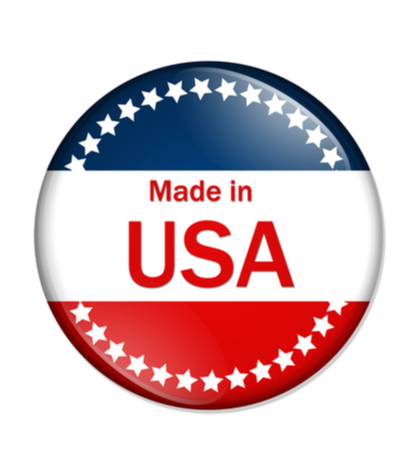Anthony Maglica wants to put “Made in USA” on the flashlights he manufactures. U.S. Rep. Darrell Issa says he will introduce legislation designed to help him do that.
A local Congressman has pledged to help an Ontario company that makes flashlights be allowed to place “Made in America” on its products.
Rep. Darrell Issa, R-Vista, toured Mag Instrument Inc. Tuesday and said he will introduce legislation that would create a national standard for using that term, one that would overrule all state laws that address the issue.
But the legislation, which Issa said he expects to introduce by the end of this month, is really aimed at California. Since 1961, the state has had its own standard for calling something manufactured here “Made in America,” a standard far stricter than the other 49 states.
Every other state follows Federal Trade Commission guidelines, which require that a preponderance of a product’s parts be made in the United States if it’s to claim that it was “Made in America,” or “Made in the USA.”
In California, the standard is 95 percent, much to the regret of Anthony Maglica, founder and president of Mag Instrument. Maglica, who started Mag Instrument in 1974 in Los Angeles and incorporated the company five years later, wants to put “Made in America” on his Maglite flashlights.
Although he has no data to back up his claim, Maglica – whose flashlights are used mostly law enforcement – believes the 95 percent rule hurts his business.
“You might be surprised how seriously some people take this,” Maglica said. “We get calls about it all of the time. A lot of people want to see “Made in the USA” on the products they buy.”
But Maglica can’t do that, because several parts used in his flashlights are made outside of the United States, starting with an O-ring that’s produced in China. Some electrical components, including several that must be put under a magnifying glass to be seen, are also made out of country.
Both of those products are manufactured for a few cents, and neither of them can be made in the United States, Maglica said.
No one paid much attention to the 95 percent rule until the mid-2000’s, when some trial attorneys learned of it and began filing lawsuits against manufacturers who weren’t complying with the law, a law they might not have been aware of.
In 2004, Mag Instrument stopped putting “Made in America” on its flashlights, after a company in Oregon that was selling its products in California lost a $14 million lawsuit in connection with the 95 percent requirement.
“It [filing lawsuits] became a cottage industry in some places,” said Jerrold B. Reilly, Mag Instrument’s corporate attorney. “Before that it was a sleeper. No one paid much attention to it. Now, Tony is as determined as he’s ever been to put “Made in America” on his flashlights.”
Several bills have been introduced in Sacramento that would have brought California’s “Made in America” standards in line with the rest of the country, but none of them came close to passing.
That reinforced Maglica’s belief, shared by much of the state’s business community, that the Democratic majority in the state legislature is hostile to business, and to manufacturing in particular. More than Mag Instrument’s bottom line is at stake in this battle, Maglica said.
“I’m 87 years old and I don’t need this job,” Magilca said. “But the people who work here do need jobs, which is one of the reasons I keep this place operating. This is not a Democrat issue or a Republican issue, it’s a people issue. People need jobs. And [the 95 percent requirement] is costing people jobs because it keeps me from expanding.”
Issa, who made his own fortune manufacturing automobile alarms, said there is no reason Maglica should not be allowed to put “Made in the USA” on his products.
“He’s not only making the machines, he’s making the machines that make the machines,” Issa said of Maglica during a 20-minute walking tour of Mag Instrument. “Tony designs everything. You don’t see that very often.”
Manufacturers can’t always be certain that every part they’re using is made in the United States, yet they can be sued if one or two of those parts slip through the cracks, Issa said.
“Everywhere else, if there’s a violation you get sued by the Federal Trade Commission, which is a government agency that doesn’t make a profit,” Issa said. “In California, you get sued by a plaintiff’s lawyer. There’s a financial gain to suing companies.”
Issa’s bill will be similar to legislation introduced in the Senate earlier this year by Sen. Mike Lee, R-Utah.
“We are asking the White House to help us move this bill,” Issa said. “President Trump has said he wants to bring back U.S. jobs and U.S. manufacturing, and we’re only going to do that through rewarding people, even if it’s only letting them say their product was made in America. We don’t want a standard that can’t be met, which is what we have now.”
 IE Business Daily Business news for the Inland Empire.
IE Business Daily Business news for the Inland Empire.


